Singakwenza Early Childhood Education supports informal and formal childcare facilities, parents and caregivers to make zero-cost toys from household waste. The organisation has been using the ELOM tools to measure impact and the results are remarkable, even though they primarily work in extremely poorly resourced communities.
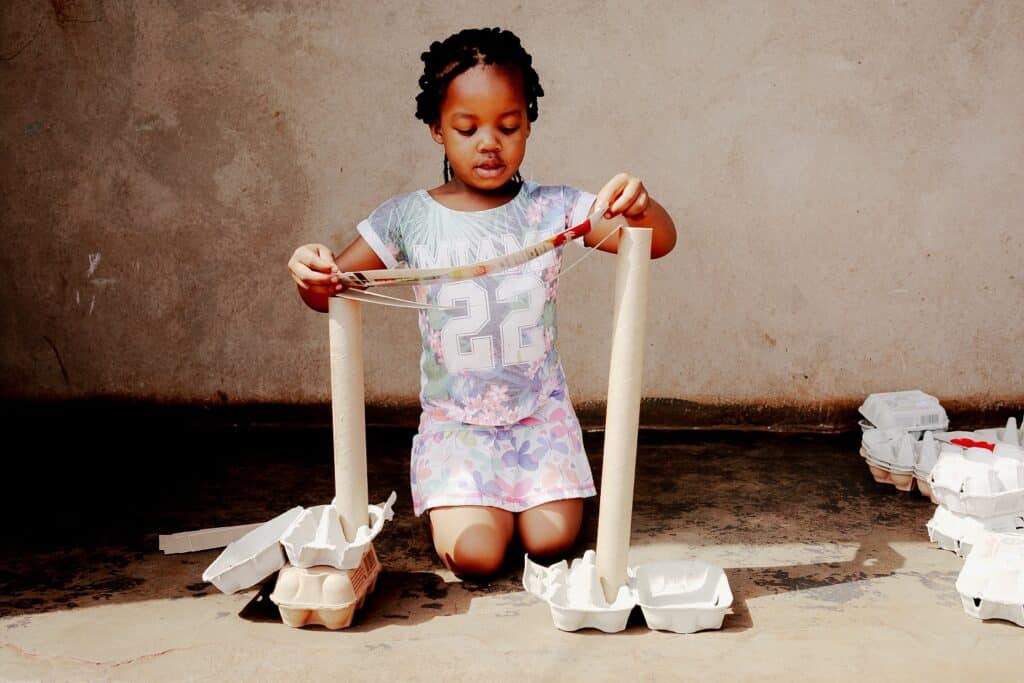
We chatted to three members of Singakwenza’s team – co-founder Julie Hay and occupational therapists Robyn McGrath and Jayde Rocher – to find out more about their eco-friendly approach.
From Waste to Toys
Singakwenza trains ECD practitioners, parents and caregivers how to provide fun, play-based early learning activities at virtually no cost.
Their Waste 2 Toys workshops teach participants how to make educational toys from household rubbish that would otherwise end up in landfill, rivers or the ocean.
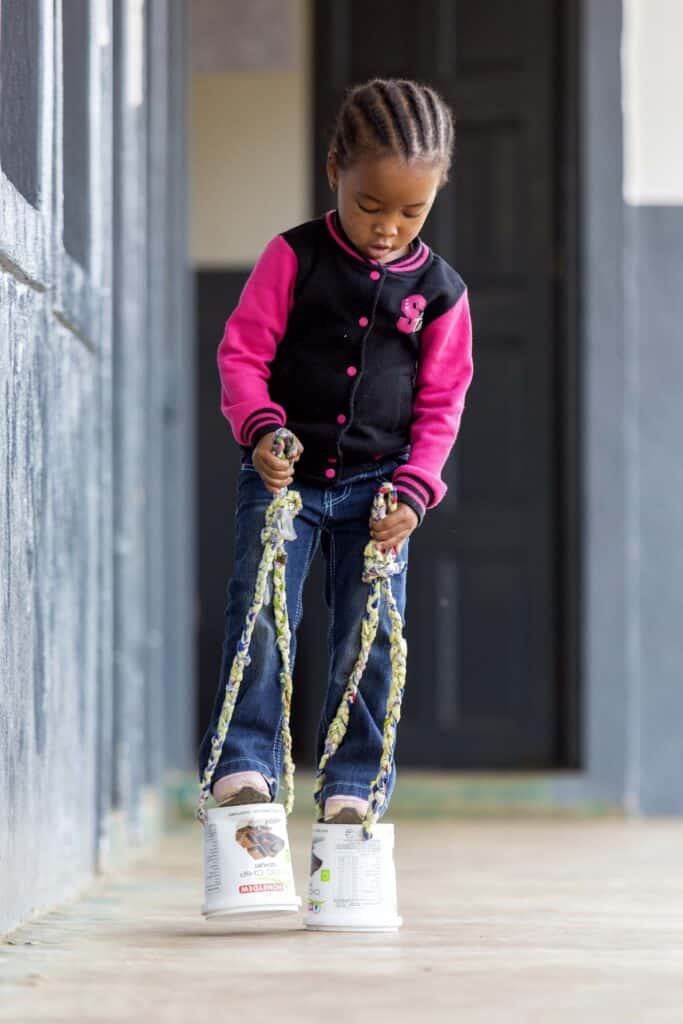
“A rope made of bread bags is as effective at developing gross motors skills as a store bought skipping rope. Something as simple as feeling that a yoghurt container full of water is heavier than one that’s half full lays the foundation for science and maths principles of weight and volume,” explains Jayde.
All the practitioner needs is a pair of scissors, a marker pen and know-how to create a wide range of play based-learning resources.
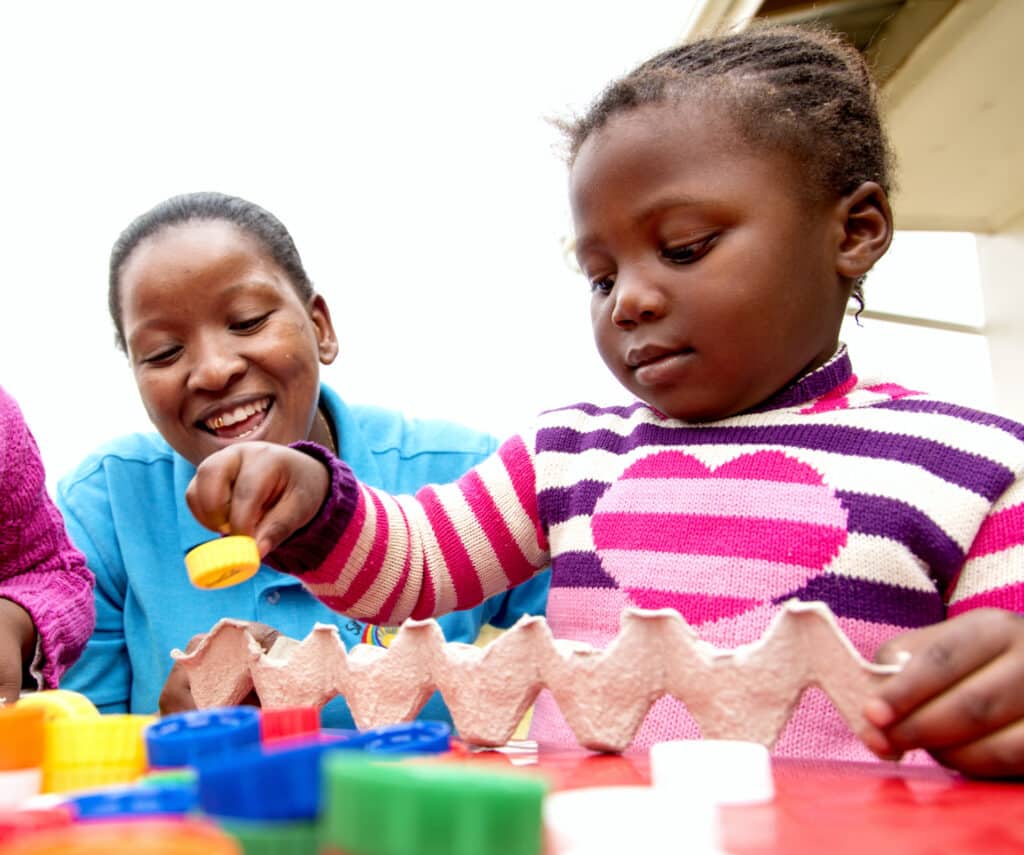
Mentorship and Support
Making a lasting impact usually requires more than a single workshop. Singakwenza’s mentorship programme takes two years to complete. During this period, a Singakwenza mentor spends one day a week at the centre, giving on-the-job support, encouragement and training. There are currently 25 creches on the programme, reaching over 1,200 children in KwaZulu-Natal and Johannesburg. Another 47 have already graduated.
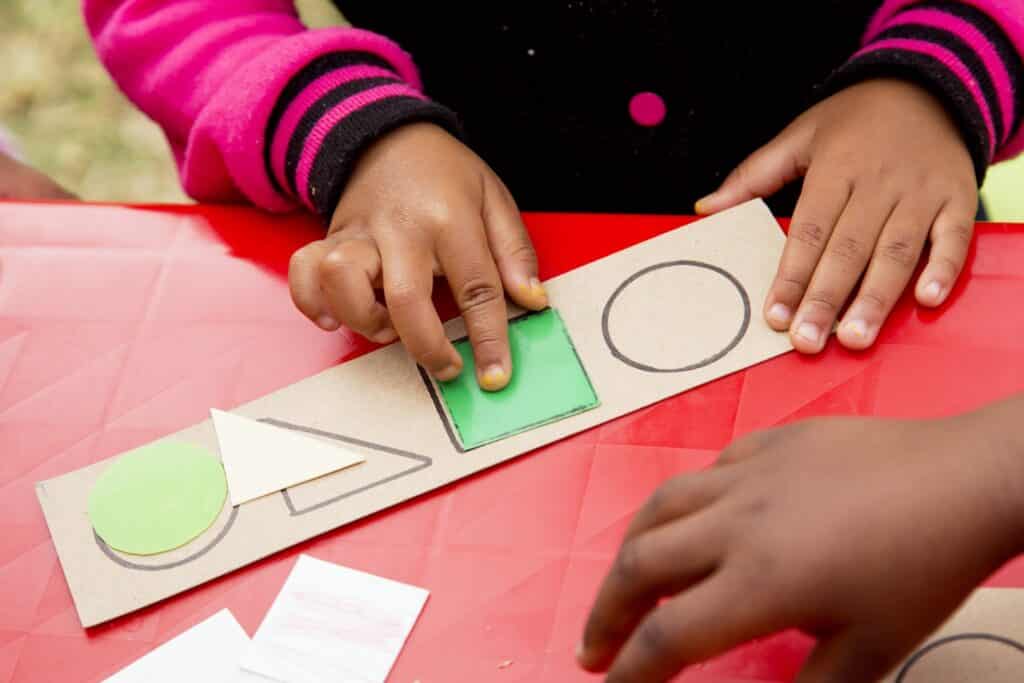
Singakwenza’s occupational therapists are involved, training facilitators on how to spot developmental red flags in young children and how to access additional therapeutic or medical support. They also work with individual children and their caregivers where needed.
According to Julie the goal is self-reliance. “By the end of the first year the creches can see a significant difference in the children’s outcomes and behaviour. The practitioners begin to understand their vital contribution to the children’s development. By the second year they are running with it, and we walk alongside them until they are ready to run on their own.”
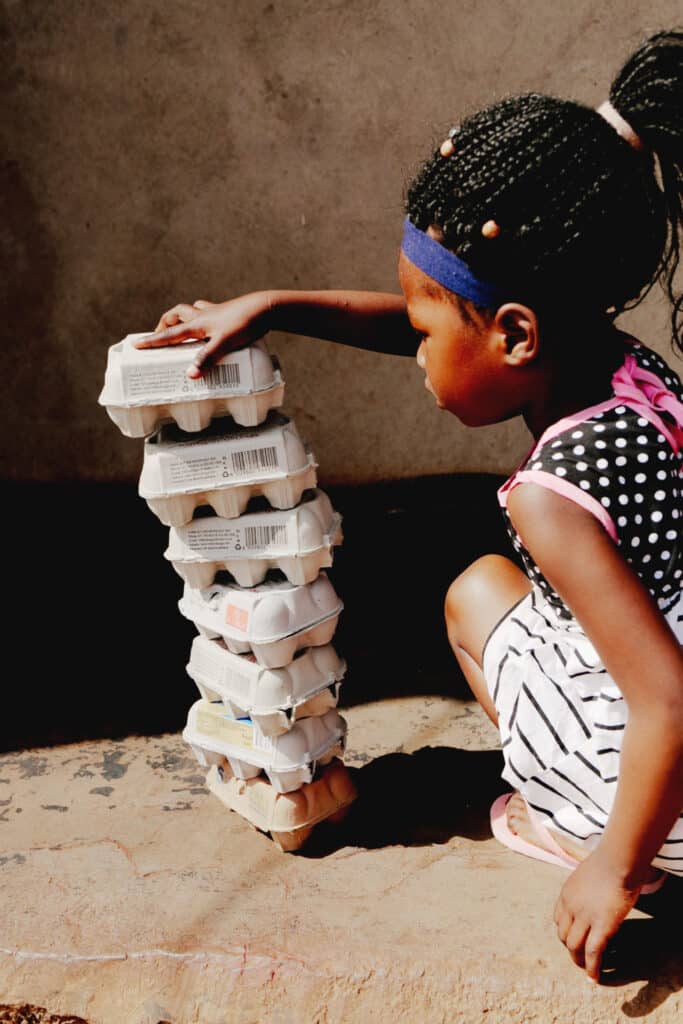
Measurement and Impact
Measurement is critical, both to report to funders and continually assess programme efficacy. Singakwenza first used ELOM in 2022. “We had tried international assessments, but they didn’t adequately work in the South African context. ELOM is nationally standardised and takes socio-economic conditions into account, so it felt a much fairer way to assess how well the children are developing.”
The initial ELOM assessment indicated Singakwenza’s results compared favourably with the province’s scores. This was very encouraging.
The data also highlighted some areas for strengthening in their programme. “There were some low scores in the fine motor and visual-motor integration (VMI) domain. We know that our fine motor is strong, so we are currently piloting activities to address VMI in two creches.”
Singakwenza’s ELOM report reinforced the impact of early intervention. “The children who have been exposed to play-based learning for longer tended to do better.”
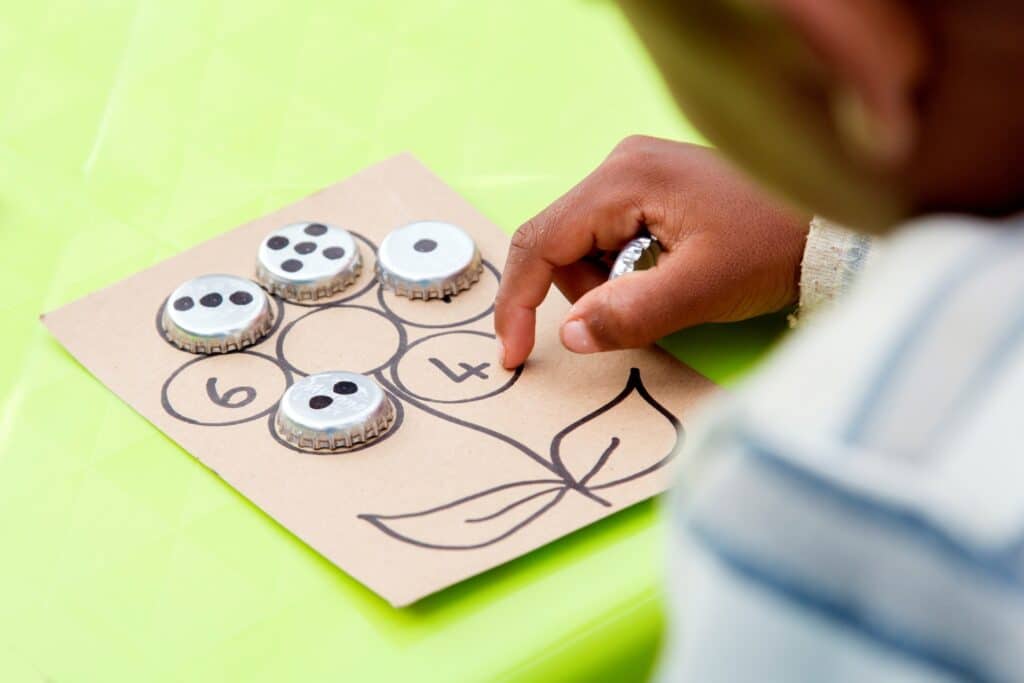
Passionate about Play
Singakwenza was founded on Julie’s passionate belief in the importance of early stimulation. “The only way to grow children out of poverty is through education and the best time to start is early. Our focus is ensuring that adults who are involved with children five years old and younger understand the importance of play for this age group. And that they know how to make fun, educational materials when resources are simply not available.”
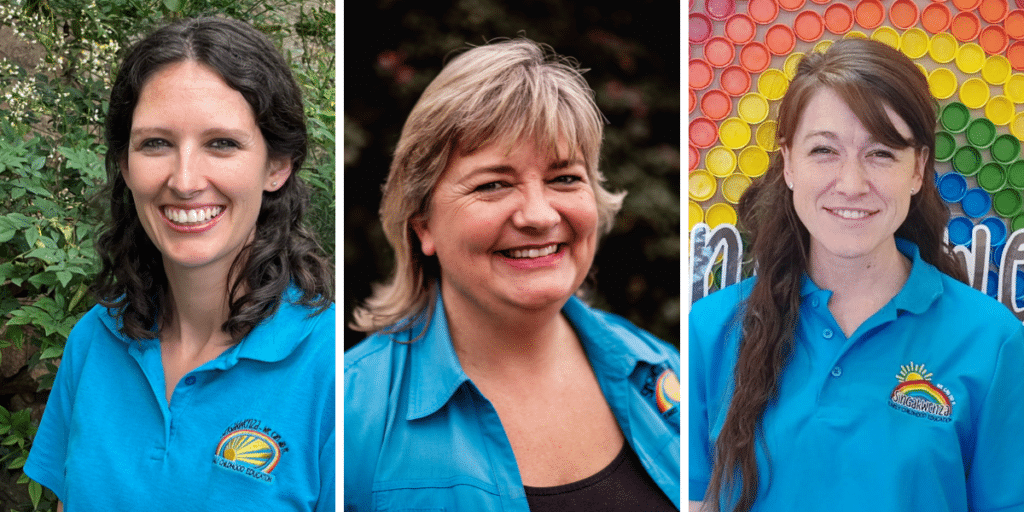
Singakwenza’s eco-friendly approach is helping to drive sustainable change in early learning. To book a workshop or find out more visit https://www.singakwenza.co.za/.
To dig deeper into the ELOM tools click here.
All photos on this page courtesy of Singakwenza.
